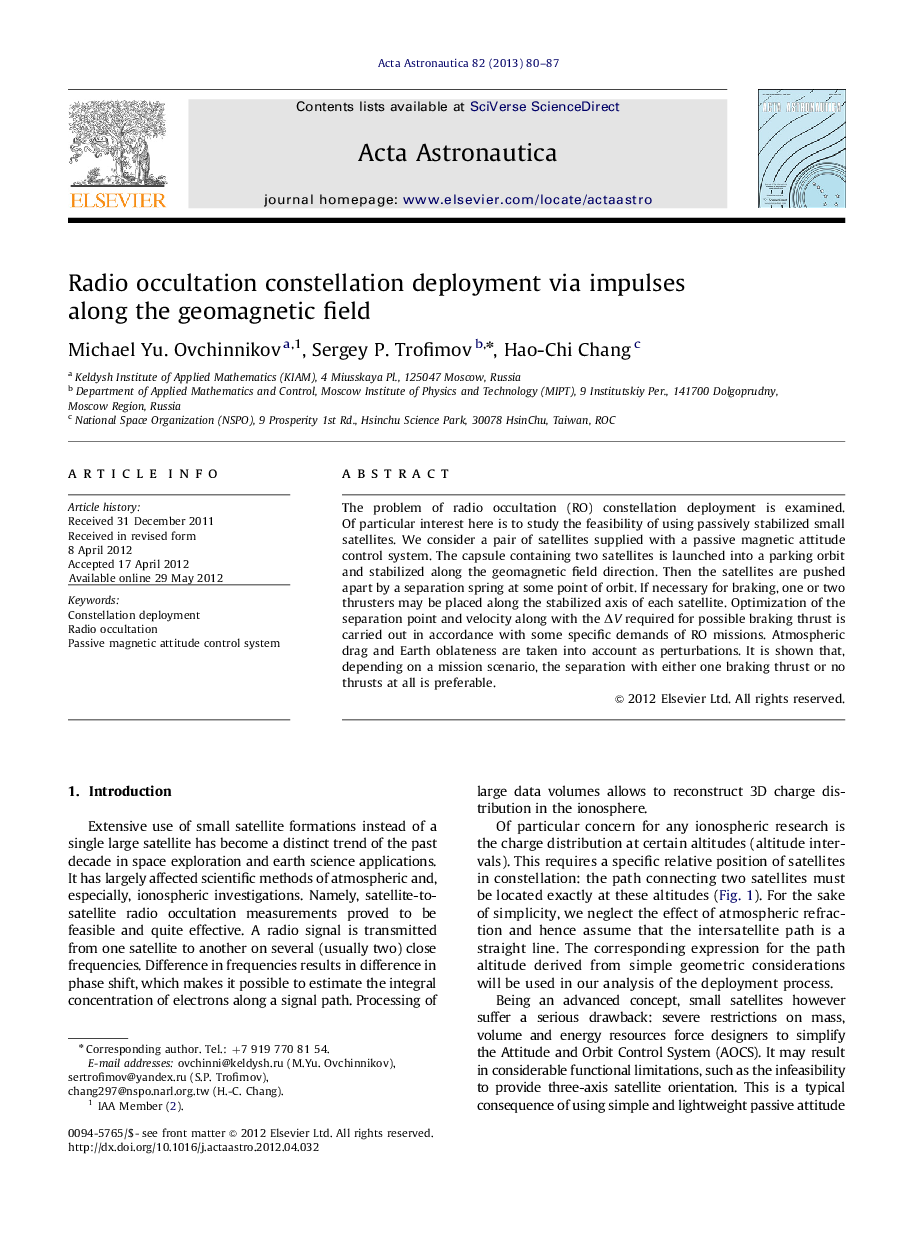| کد مقاله | کد نشریه | سال انتشار | مقاله انگلیسی | نسخه تمام متن |
|---|---|---|---|---|
| 1715228 | 1013358 | 2013 | 8 صفحه PDF | دانلود رایگان |

The problem of radio occultation (RO) constellation deployment is examined. Of particular interest here is to study the feasibility of using passively stabilized small satellites. We consider a pair of satellites supplied with a passive magnetic attitude control system. The capsule containing two satellites is launched into a parking orbit and stabilized along the geomagnetic field direction. Then the satellites are pushed apart by a separation spring at some point of orbit. If necessary for braking, one or two thrusters may be placed along the stabilized axis of each satellite. Optimization of the separation point and velocity along with the ΔV required for possible braking thrust is carried out in accordance with some specific demands of RO missions. Atmospheric drag and Earth oblateness are taken into account as perturbations. It is shown that, depending on a mission scenario, the separation with either one braking thrust or no thrusts at all is preferable.
► We study separation of two satellites with passive magnetic attitude control system.
► We study feasibility of using similar satellites for radio occultation missions.
► For short along-track separation process, all perturbations are negligible.
► The separation without braking is preferable for some mission scenarios.
Journal: Acta Astronautica - Volume 82, Issue 1, January 2013, Pages 80–87